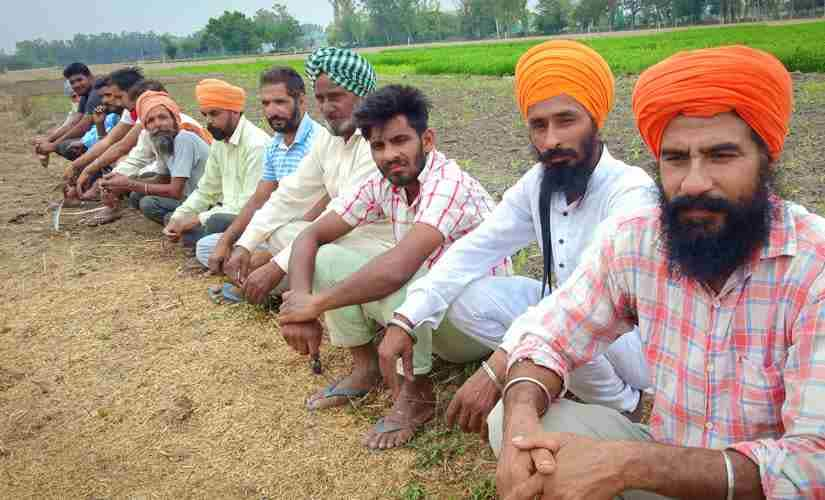Punjab is known for a high population of Sikh people but few know that caste based discrimination against Dalit Sikhs in the state has taken new heights with time as people from the community are not allowed inside Gurudwaras meant for high caste Jat Sikhs.
Caste-based discrimination is followed in Punjab since centuries despite the fact that Sikhs do not believe in caste structure.
The effort to end this discrimination is being led by the Shri Gurudwara Prabandhak Committee (SGPC) that is working with local people to end this practice. The discrimination by high caste Jat Sikhs against Dalit Sikhs is witnessed in majority of the villages in Punjab. Dalit Sikhs in many areas are not allowed to enter the Gurudwaras for Jats and instead they have to go to Gurudwaras for Dalits.
In many rural and urban areas of Punjab, there are separate Gurudwaras made for the Jat and Dalit community.
Caste-based discrimination is widespread in Punjab even though Sikhism teaches equality. In Punjab, there are many separate places of worship and cremation grounds made for Dalit people. In some places, Dalits are allowed to enter the Gurudwaras that are reserved for Jat people but they can’t join the upper caste Jats in langar or community kitchen.
They are also not allowed to touch the vessels that are meant for religious ceremonies in these Gurudwaras. In many incidents in Sangrur and Bathinda district of Punjab, Dalit Sikhs were asked to use separate utensils and were also prohibited from serving langar.
In Punjab, about 32% of the population belongs to the Dalit community out of which 59.9% are Sikhs and 39.6% are Hindu. The upper-caste has only a population of 25%. The Jat community has an upper hand in politics and economy. The Jat people in Punjab own large areas of land while Dalits possess only 6.02% of the 1.1 million operational lands in Punjab. Out of 523,000 families living below the poverty line, 321,000 belongs to the Dalit community. According to the data, 35.88% of Punjab’s labor force consists of Schedule Caste workers. Out of this 79.20% are the main workers who work for 6 months or more and 20.80% are marginal workers who work for less than 6 months.
However, Covid-19 pandemic has washed away the caste-based discrimination to some extent. In several villages of Punjab, the Jat Gurudwaras send food to the Dalit homes even during the lockdown. The crisis has taught everyone that no religion is above humanity and the individuals have to help each other irrespective of their caste. Many Jat people are sending money from abroad to Gurudwaras to help the Dalits. Not only Gurudwaras but upper-caste families are also helping the poor.
According to the Sikh scholars, the founder of Sikhism Guru Nanak Dev described all humans as equal and rejected the idea of casteism. “His disciples followed his footsteps and worked to build a casteless kitchen so that no person will sleep with an empty stomach at night. The policy of casteism entered the state of Punjab when political parties started ruling the state. The political leaders started dividing people on the bases of caste and religion to increase their vote bank. Separate gurudwaras in several villages were constructed by leaders of political parties for high-class Jats and for Mazhabi Sikhs or Dalits” said Gurtej Singh, a Sikh scholar.
Now the efforts are being made to destroy this wall of discrimination in Gurudwaras. The SGPC, has started a campaign in February last year named as One Village, One Gurudwara under which they are merging the multiple caste Gurudwaras into one. According to Harjinder Singh, a Dalit leader of Shiromani Akali Dal (SAD) this is the first kind of initiative, and people of Punjab have stood against what Guru Nanak has fought during his entire life. He also said that it is very shameful that we have given religious sanction to caste Gurudwaras.
According to, the Sarpanch of Qila Nau a village in Punjab has a population of 4,400 out of which 50.60% are Dalits. The village has 5 small and 1 big Gurudwara that is reserved for upper-class Jats and one for Dalits and rest are open to all. But now all these religious places have come together to fight coronavirus and to provide food to the daily wage workers. He said that the food is cooked in Gurudwaras and is served to the poor people twice a day. He further said that during the lockdown village youths of different castes distributed langar to all the daily wage workers.
